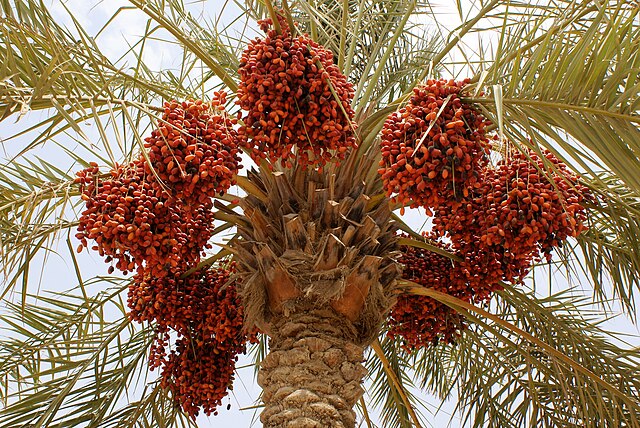The Judean date palm is a date palm grown in Judea. It is not clear whether there was ever a single distinct Judean cultivar, but dates grown in the region have had distinctive reputations for thousands of years, and the date palm was anciently regarded as a symbol of the region and its fertility. Cultivation of dates in the region almost disappeared after the 14th century AD from a combination of climate change and infrastructure decay but has been revived in modern times.
The Judean date palm at Ketura, Israel, nicknamed Methuselah
Vespasian coin celebrating the victory over the rebels. The legend says: IVDEA CAPTA ("Judaea [has been] captured")
Phoenix dactylifera, commonly known as the date palm, is a flowering-plant species in the palm family, Arecaceae, cultivated for its edible sweet fruit called dates. The species is widely cultivated across northern Africa, the Middle East, Horn of Africa, Australia, South Asia, and California. It is naturalized in many tropical and subtropical regions worldwide. P. dactylifera is the type species of genus Phoenix, which contains 12–19 species of wild date palms.
Date palm
Deglet Noor dates
Phoenix dactylifera trunk section. As with other members of the palm family, date palms do not produce tree rings.
Leaves of the date palm


![Vespasian coin celebrating the victory over the rebels. The legend says: IVDEA CAPTA ("Judaea [has been] captured")](https://upload.wikimedia.org/wikipedia/commons/thumb/b/ba/Sestertius_-_Vespasiano_-_Iudaea_Capta-RIC_0424.jpg/640px-Sestertius_-_Vespasiano_-_Iudaea_Capta-RIC_0424.jpg)



